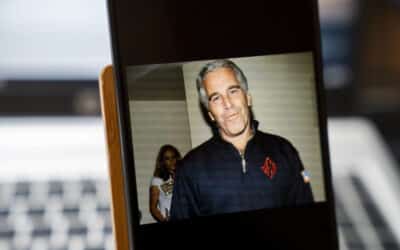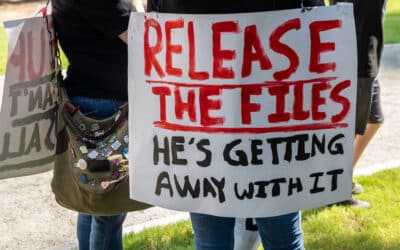A great deal of the coverage of the COVID-19 crisis has been apocalyptic. That is partly because “if it bleeds, it leads.” But it is also because some of the medical experts with media megaphones have put forward potentially catastrophic scenarios and drastic plans to deal with them, reinforced by assertions that the rest of us should “listen to the experts,” because only they know enough to determine policy. Unfortunately, those experts don’t know enough to determine appropriate policies.
Doctors, infectious disease specialists, epidemiologists, etc. know more things about diseases, their courses, what increases or decreases their rate of spread, and so on than most. But the most crucial of that information has been browbeaten into the rest of us by now. Limited and imperfect testing also means that the available statistics may be very misleading (e.g., is an uptick in reported cases real or the result of an increasing rate of, or more accuracy in, testing, which is crucial to determining the likely future course COVID-19?). Further, to the extent that the virus’s characteristics are unique, no one knows exactly what will happen. All of that makes “shut up and listen” advice less compelling.
More important, however, may be that in making recommendations to address COVID-19, those with detailed knowledge of the disease (the experts we have been told to obey) do not have sufficient knowledge of the consequences of their “solutions” for the economy and society to know what the costs will be. That means that they don’t know enough to accurately compare the benefits to the costs. In particular, because of their relative unawareness of the many margins at which effects will be felt, the medical experts we are being told to follow will likely underestimate those costs. When combined with their natural desire to solve the medical problem, however severe it might get, this can lead to overly draconian proposals.
This issue has been brought to the fore by the increasing number of people who have begun questioning the likelihood of the apocalyptic scenarios driving the “OMG! We need to do everything that might help” tweetstorms, on the one hand, and those who are emphasizing that “shutting down the economy” is far more costly than planners recognized, on the other.
Those who have brought up such issues (how long before they are called “COVID deniers”?) have been pilloried for it. Exhibit A is the vilification of President Trump for “ignoring the scientists,” such as the New York Time’s claim that “Trump thinks he knows better than the doctors” after he tweeted that “We cannot let the cure be worse than the problem itself.”
One major problem with such attacks is the substantial literature documenting the adverse health effects of worsening economic conditions. For just one example, an analysis of the 2008 economic meltdown in The Lancet estimated that it “was associated with over 260,000 excess cancer deaths in the OECD alone, between 2008–2010.” That is a massive “detail” to ignore in forming policy.
In other words, the tradeoff is not just a matter of lives lost versus money, as it is often portrayed as being (e.g., New York governor Cuomo’s assertion that “we’re not going to put a dollar figure on human life”). It is a tradeoff between lives lost due to COVID and lives that will be lost due to the policies adopted to reduce COVID deaths.
Larry O’Connor put this well at Townhall when he wrote:
Why should the scientific analysis of doctors solely focusing on the spread of the coronavirus carry more weight than the very real scientific analysis of the deadly health ramifications of shutting down our economy? Doesn’t the totality of the data make the argument for a balanced approach to this crisis?
This issue reminds me of a classic discussion of specialists and planning in chapter 4 of F.A. Hayek’s The Road to Serfdom. “The Inevitability of Planning” is well worth noting today:
Almost every one of the technical ideals of our experts could be realized…if to achieve them were made the sole aim of humanity.
We all find it difficult to bear to see things left undone which everybody must admit are both desirable and possible. That these things cannot all be done at the same time, that any one of them can be achieved only at the sacrifice of others, can be seen only by taking into account factors which fall outside any specialism…[which] forces us to see against a wider background the objects to which most of our labors are directed.
Every one of the many things which, considered in isolation, it would be possible to achieve…creates enthusiasts for planning who feel confident…[of] the value of the particular objective…But it is…foolish to quote such instances of technical excellence in particular fields as evidence of the general superiority of planning.
The hopes they place in planning…are the result not of a comprehensive view of society but rather of a very limited view and often the result of a great exaggeration of the importance of the ends they place foremost…it would make the very men who are most anxious to plan society the most dangerous if they were allowed to do so—and the most intolerant of the planning of others…there could hardly be a more unbearable—and much more irrational—world than one in which the most eminent specialists in each field were allowed to proceed unchecked with the realization of their ideals.
Panic has seldom improved the rationality of decision-making (beyond the “fight or flight” reaction to facing a “man-eater,” when to stop and think means certain death). However, much of media coverage has fed panic. But the illogical and intemperate media attacks against those questioning the rationality of draconian “solutions” drown out, rather than enable, objective discussion of real tradeoffs. And if “Democracy dies in darkness,” as the Washington Post proclaims, we should remember that it does not require total darkness. The same conclusion follows when people are kept in the dark about major aspects of the reality they face.
Reprinted from the Independent Institute.































